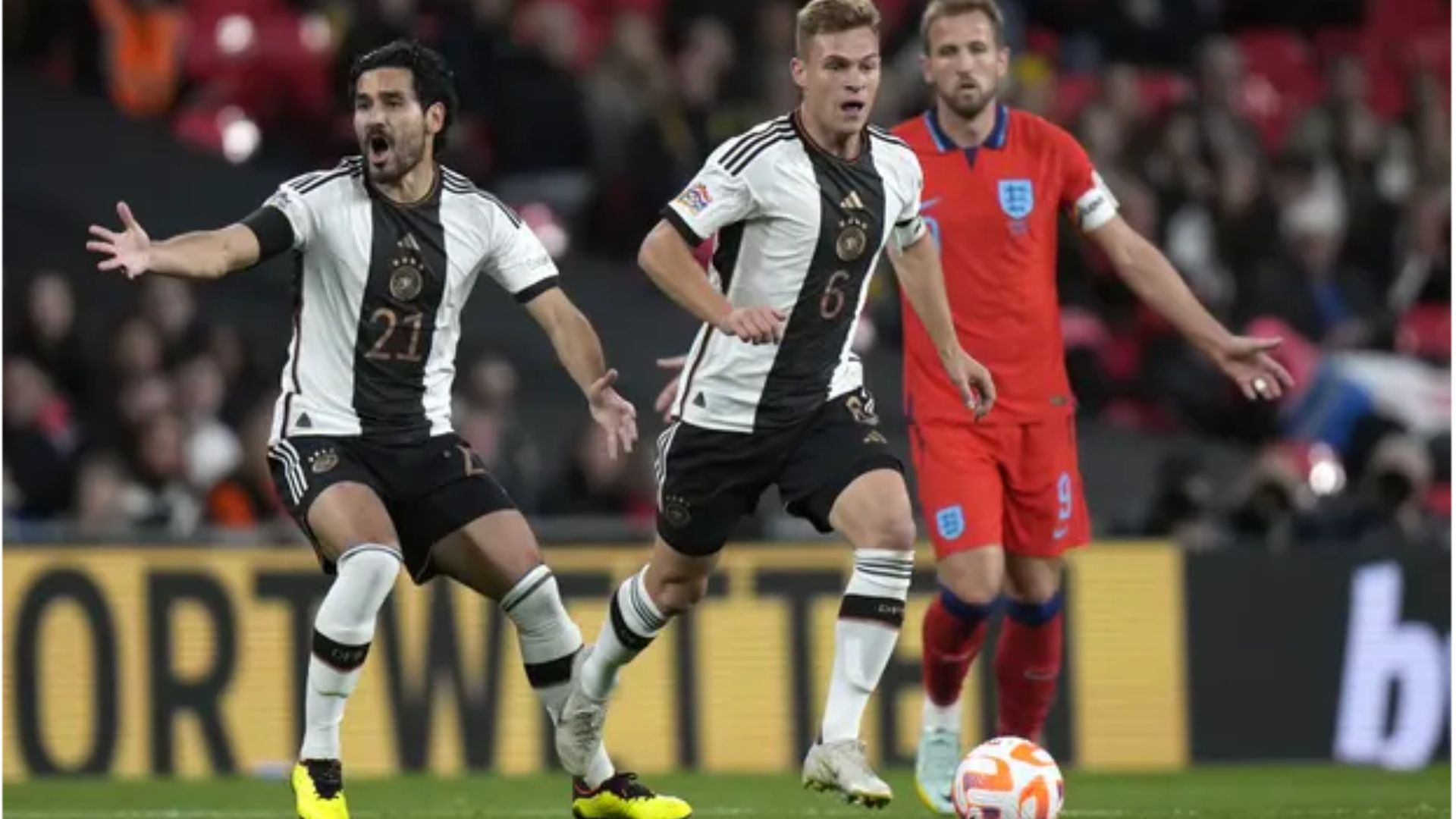Serge Gnabry was on the pitch. They thought it was everywhere. With Germany 2-0 up at a gloomy Wembley, Hansi Flick chose to throw back and carry out his replacements. On came Gnabry, attempting to play himself back into the structure after an aloof beginning to the season with Bayern Munich. On came Robin Gosens, seeing an opportunity to recover the left-back compartment. Be that as it may, with 20 minutes to play, the overall sense was of a slowing down, a stuff shift, an open door to present itself the ball around as the stands gradually exhausted around them.
On this front, most would agree things didn’t exactly go to design. For sure, maybe the most apparent sign of the enduring Germany persevered during those last 20 minutes came at full time. As the whistle blew, focus backs Nico Schlotterbeck and Niklas Süle twisted twofold, the weariest men on the pitch, having borne the brunt of a rebuking late England attack. Kai Havertz’s balancing objective had rescued a little comfort from the jaws of the fiasco. In any case, Germany’s non-verbal communication recounted its own story: the essential separation of a group arriving at the aggregate understanding that it doesn’t know itself very well as it suspected.
Flick’s group will venture out to Oman for their pre-World Cup instructional course on a run of only one dominate in seven matches, with a more significant number of inquiries than the response. An underlying help at the death of the Joachim Löw period has given way to a specific self-reflexive uncertainty: the doubt that the fundamental issues in this side go further than its maturing mentor.
These issues are not terminal or unfixable. This remains a lavishly capable crew with champion footballers in each pitch space. In any case, at the present time, something seems, by all accounts, to be missing. The old surenesses – versatility, character, self-restraint, cautious strength, the capacity to burgle an objective right now it is generally required – never again feel as sure as they did.
Assuming an absence of rationality in the assault has been the characterizing topic of Germany’s last couple of games, then here it was their fragility at the back that was most unsettling. Indeed, the next open doors were on the counter even before England’s rebound. Raheem Authentic had two great possibilities in the primary half. Furthermore, on the events, England had the option to play through the press; there was bountiful space for them to run into space that generally had been cleared by Joshua Kimmich.
There has been a thundering discussion in Germany over late weeks about Kimmich’s job in midfield, with the public group as well as with Bayern. His gifts are plainly obvious: an eminent passing reach, speed of thought, a mysterious perusing of the game. What is less clear is the way best to utilize them. Philipp Lahm, as of late, seen that Kimmich’s ongoing relocation into a going after the player has obscured a portion of his guarded liabilities. “What is pivotal,” Lahm said, “is that the jobs should be allocated. I don’t see that right now. I don’t at present grasp his job.”
In late games, Kimmich was sent close by Ilkay Gündogan, likewise a meandering, pillaging kind of midfielder. At the point when it works, it functions admirably: Kimmich getting the ball from the safeguard and setting Gündogan off with a burning corner-to-corner pass. However, there were snapshots of disarray here, times when it was indistinct who might proceed and who might cover, times when the two pushed high and abandoned holes. Leon Goretzka, Kimmich’s Bayern partner and a more regular covering player, could settle the issue. Be that as it may,, Flick appears to favour the flexibility of Gündogan, his capacity to make late runs into the container, an insurance contract in a group not favoured with normal goalscorers.
One might say this exemplifies Flick’s difficulty: conceal one imperfection, and another shows up, similar to one of those sliding square games. Force Kimmich to sit further, and you lose an innovative presence further up the field. Bring the cautious lineup, and you leave yourself helpless against pace. In the meantime, the presentation of Timo Werner in the last part reinforced Germany’s press; however, he likewise botched two great opportunities. And keeping in mind that the arrival of Antonio Rüdiger will support the guard, Flick has issues to tackle at full-back, where neither Thilo Kehrer nor David Raum has put forth an unanswerable defence.
This is, obviously, a ridiculously open World Cup. However, reviewing a German competition side with so many trouble spots and so little feeling of its own capacities is difficult. Was this a dull breakdown or a propping rebound? Is this a group on the cusp of meeting up or very nearly going to pieces? Not until Qatar, you feel, will we know the response.




